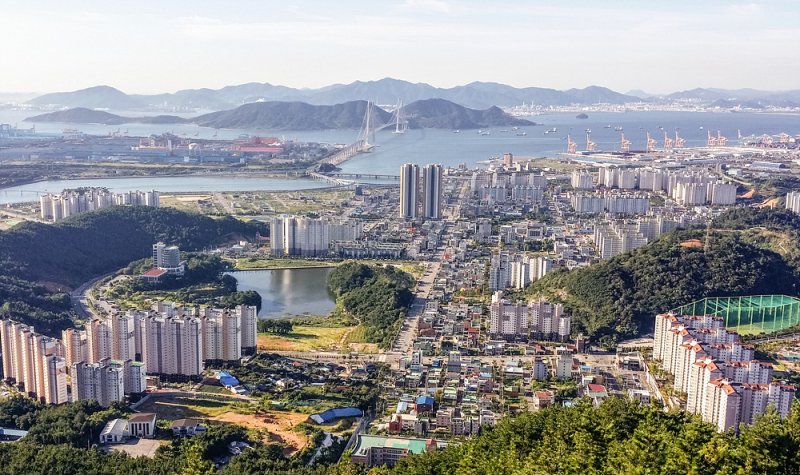Gwangyang-si in Jeonnam Falters Amid Steel Industry Downturn, Designated as Preemptive Industrial Crisis Response Area
- Input
- 2025-11-20 14:16:25
- Updated
- 2025-11-20 14:16:25

[Financial News] As the region’s main industry, the steel industry, has stagnated, Gwangyang-si’s local economy has significantly contracted and the city has been designated as a Preemptive Industrial Crisis Response Area.
On the 20th, the Ministry of Trade, Industry and Energy (MOTIE) held the Industrial Crisis Response Deliberation Committee and announced that Gwangyang-si would be designated as a Preemptive Industrial Crisis Response Area for two years, until November 19, 2027.
This is the fourth such designation, following Yeosu (petrochemicals), Seosan (petrochemicals), and Pohang (steel industry).
On October 1, South Jeolla Province applied for Gwangyang-si to be designated as a Preemptive Industrial Crisis Response Area due to the crisis in the steel industry. Gwangyang-si relies on the steel industry for 88.5% of its production, 97.5% of its exports, and 9.7% of its employment. Recently, the local economy, which is heavily dependent on the steel sector, has been hit hard by an increase in low-priced steel imports, falling prices, and sluggish domestic demand.
Previously, the government announced measures to advance the steel industry in response to global oversupply, the United States (U.S.) steel tariff policies, and trade barriers such as the European Union (EU)’s low-carbon transition. In addition, the so-called 'K-Steel Act' passed a parliamentary subcommittee with bipartisan support the previous day, providing further support for the steel industry. The K-Steel Act requires the government to establish and implement a basic plan every five years to strengthen the competitiveness of the steel industry and promote carbon neutrality. It also includes provisions to support the development and adoption of green steel technology and related facilities.
With this designation, the government will prioritize emergency management stabilization funds, local investment promotion subsidies, and enhanced policy financing for small and medium-sized enterprises. The Korea SMEs and Startups Agency (KOSME) will provide up to 1 billion KRW in emergency stabilization funds to local businesses at an interest rate of 3.71%. The Small Enterprise and Market Service will offer up to 70 million KRW at a 2.68% interest rate. Both are structured as loans with a two-year grace period and a five-year maturity.
Additionally, local investment promotion subsidies for large companies will be increased from 4–9% of facility investment to 12%. For mid-sized companies, support for site investment will rise from 5–25% to 30%, and support for facilities will increase from 6–12% to 20%.
Furthermore, through the Regional Industrial Crisis Response Project, the government will provide interest subsidies of up to 1 billion KRW to reduce the loan burden for companies in crisis areas. Tailored support will also be offered to strengthen corporate competitiveness.
A MOTIE official stated, "We will actively reflect various support projects needed for the region to overcome the crisis, such as research and development, management consulting, and employment stabilization, in the budget after 2026."
Meanwhile, Kim Young-rok, Governor of South Jeolla Province, commented, "I sincerely welcome the designation of Gwangyang-si, the center of Korea’s steel industry, as a Preemptive Industrial Crisis Response Area." He added, "This designation will serve as a crucial turning point for transforming the steel industry, a key national industry, into a low-carbon and advanced sector."
aber@fnnews.com Park Ji-young Reporter